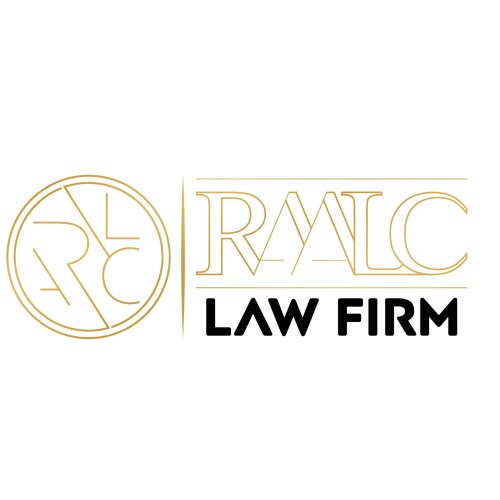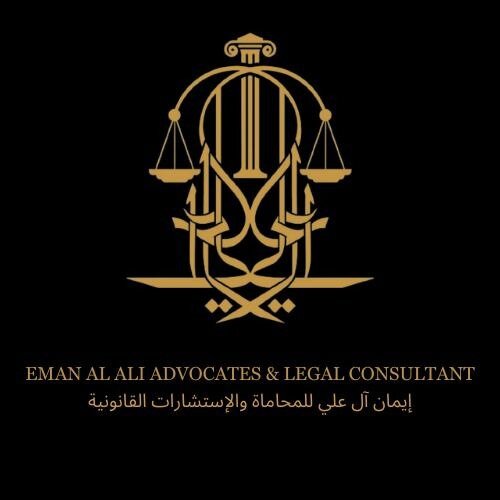Best Commercial Litigation Lawyers in Dubai
Share your needs with us, get contacted by law firms.
Free. Takes 2 min.
List of the best lawyers in Dubai, United Arab Emirates

Mohamed Eid Al Suwaidi Advocates & Legal Consultants
30 minutes Free ConsultationAbout Commercial Litigation Law in Dubai, United Arab Emirates
Commercial litigation is a legal process involving disputes arising from commercial or business relationships. In Dubai, United Arab Emirates, commercial litigation covers a variety of conflicts such as breach of contract, non-payment, partnership disputes, shareholder disagreements, intellectual property infringement, and more. These disputes are usually resolved before the local courts or, in certain cases, through alternative dispute resolution methods like arbitration. The business ecosystem in Dubai is dynamic and attracts local and international participants, meaning the scope of commercial litigation is both extensive and complex due to the cross-border nature of many business dealings.
Why You May Need a Lawyer
Involvement in commercial litigation often requires a skilled legal professional due to the intricate nature of the laws and the high financial and reputational stakes. You might need a lawyer if you encounter situations such as:
- Breach of business contracts or disputes over their interpretation
- Partnership or shareholder disagreements within companies
- Issues with unpaid invoices or debts in a business transaction
- Employment or labor disputes involving commercial enterprises
- Intellectual property infringement affecting your business operations
- Real estate disputes connected with commercial property
- Supply chain, distribution, or agency agreement conflicts
- Disputes involving foreign investors or cross-border transactions
- Government regulatory non-compliance or investigations
- Seeking to enforce a foreign judgment or arbitral award in Dubai
Hiring a lawyer ensures your interests are protected throughout proceedings, helps you navigate local legal processes, and can assist with negotiation or settlement to avoid lengthy and costly court battles.
Local Laws Overview
Dubai follows a unique legal framework that combines principles of civil law with influences from Islamic law (Sharia) and specific local regulations. For commercial litigation, the most relevant laws and regulations include:
- UAE Commercial Transactions Law: This law regulates commercial contracts, obligations, and business transactions.
- UAE Civil Code: Forms the basis for contract law, setting out the rules governing the formation and performance of contracts.
- UAE Companies Law: Regulates establishment, operation, and dissolution of commercial entities.
- Court System: Commercial disputes in Dubai may be resolved in the Dubai Courts or, for certain matters, in the DIFC Courts. The Dubai Courts apply UAE law in Arabic, while DIFC Courts operate in English under a common-law system.
- Arbitration: Dubai is home to several arbitration centers, notably the Dubai International Arbitration Centre (DIAC) and the DIFC-LCIA Arbitration Centre. Many commercial contracts specify arbitration as the preferred dispute resolution method.
- Enforcement: Dubai courts can enforce local and, under specific conditions, foreign judgments and arbitral awards.
Procedures and timeframes differ depending on the nature and complexity of the dispute. Legal representation is not mandatory, but highly advisable due to the technicalities of court processes and deadlines.
Frequently Asked Questions
What is the process for filing a commercial lawsuit in Dubai?
Most commercial lawsuits begin with filing a statement of claim at the relevant court. The claim should detail the facts, legal grounds, and supporting evidence. The defendant is then notified and invited to respond, after which the court may schedule hearings and make a decision. The process may include mediation attempts and, in some cases, expert reports.
How long does it take to resolve a commercial lawsuit?
The time needed to resolve a commercial dispute varies. Straightforward cases may conclude in a few months, while more complex matters or cases involving expert opinions and appeals can take a year or more.
Do I need to attend hearings in person?
In most cases, physical attendance is not required if you have appointed a lawyer. Lawyers in Dubai routinely represent clients, both individuals and corporations, in their absence, providing significant convenience to foreign or overseas parties.
Are court judgments public in Dubai?
Judgments in the Dubai Courts are generally not published or made public. However, involved parties have access to the details of their own cases and judgments.
Can foreign companies file commercial lawsuits in Dubai?
Yes, foreign entities can initiate commercial lawsuits in Dubai courts. They must comply with local procedures, appoint a properly licensed lawyer, and in some cases, translate documents into Arabic.
What are the differences between Dubai Courts and DIFC Courts?
Dubai Courts operate under UAE law and procedures in Arabic, dealing with most local disputes. DIFC Courts, located in the Dubai International Financial Centre, use English and apply common law, often handling finance, banking, and international commercial matters, especially if the contract specifies their jurisdiction.
How are arbitration awards enforced in Dubai?
Arbitration awards issued in Dubai, or abroad, can generally be enforced through the Dubai Courts as long as due process and formalities were followed. The enforcement process may require validation from the local court, especially for foreign awards.
What are the key documents required to file a commercial case?
Essential documents may include the contract at issue, correspondence between parties, invoices, proof of payment, company licenses, and relevant identification documents. All documents must usually be translated into Arabic and notarized.
How are legal fees determined for commercial litigation?
Legal fees are typically agreed upon with your lawyer and may be charged as a flat fee, hourly rates, or based on the value of the claim. Dubai Courts also charge official court fees, which depend on the claim amount.
What are the alternatives to court litigation for resolving commercial disputes?
Alternative dispute resolution methods include mediation and arbitration. Many commercial contracts in Dubai and the wider UAE specify arbitration as the preferred process for dispute resolution, offering confidentiality and potentially faster outcomes.
Additional Resources
If you are seeking further information or assistance with commercial litigation in Dubai, consider these resources:
- Dubai Courts - Official government body for civil and commercial litigation.
- Dubai International Arbitration Centre (DIAC) - For disputes resolved through arbitration.
- DIFC Courts - Handles commercial cases under common law, especially within the Dubai International Financial Centre.
- UAE Ministry of Justice - Source for national laws, legal guidance, and notary services.
- Dubai Legal Affairs Department - Regulatory body for lawyers and legal consultants practicing in Dubai.
- Dubai Chamber of Commerce - Offers support for businesses navigating commercial disputes.
Next Steps
If you are facing a commercial dispute or anticipate one, here are key steps to take:
- Gather and organize all relevant documentation, such as contracts, invoices, and correspondence.
- Seek legal consultation with a lawyer specializing in commercial litigation in Dubai. This first meeting helps you assess your case and understand potential outcomes.
- Act promptly, as UAE law imposes time limits (statutes of limitation) for initiating legal proceedings.
- Discuss possible alternative dispute resolution options, especially if time or confidentiality is a concern.
- Ensure you are clear about legal fees, timelines, and the steps involved before proceeding.
- If you are a foreign party, appoint a properly licensed UAE lawyer who can act on your behalf.
Dealing with commercial litigation in Dubai can be complex, but professional legal advice can save time, cost, and protect your business interests. Always consult with a qualified legal professional to get advice tailored to your situation.
Lawzana helps you find the best lawyers and law firms in Dubai through a curated and pre-screened list of qualified legal professionals. Our platform offers rankings and detailed profiles of attorneys and law firms, allowing you to compare based on practice areas, including Commercial Litigation, experience, and client feedback.
Each profile includes a description of the firm's areas of practice, client reviews, team members and partners, year of establishment, spoken languages, office locations, contact information, social media presence, and any published articles or resources. Most firms on our platform speak English and are experienced in both local and international legal matters.
Get a quote from top-rated law firms in Dubai, United Arab Emirates — quickly, securely, and without unnecessary hassle.
Disclaimer:
The information provided on this page is for general informational purposes only and does not constitute legal advice. While we strive to ensure the accuracy and relevance of the content, legal information may change over time, and interpretations of the law can vary. You should always consult with a qualified legal professional for advice specific to your situation.
We disclaim all liability for actions taken or not taken based on the content of this page. If you believe any information is incorrect or outdated, please contact us, and we will review and update it where appropriate.
















